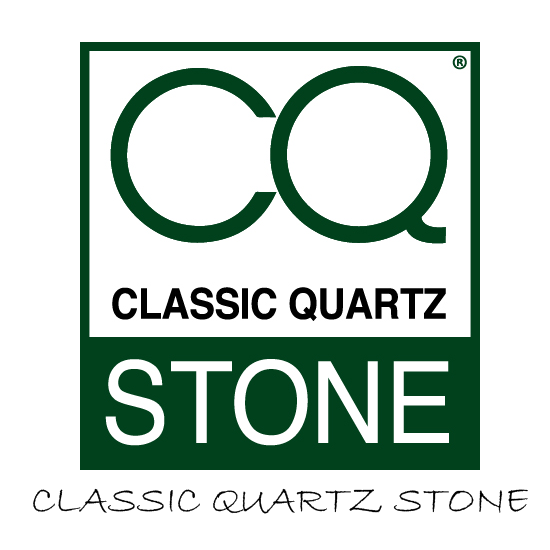You may be curious about what to choose when it comes to Granite vs Quartz slabs, and which one is better. Well, we can show you the differences between the both of them.
Granite slabs for worktops come from quarries and are actual “slabs”of stone cut from blocks of granite.
Quartz slabs, on the other hand, are a mixture of pulverized quartz and a special resin. At the ratio of 93% quartz and 7% resin. Which allows complete customisation of styles, colours and textures.
Advantages of Quartz Slabs
- Quartz slabs are equally, if not more durable than granite. With the added benefit of being easy to work with and cut for installation.
- Quartz slabs, being a crystal is none – porous, unlike granite Slabs, and will never need to be sealed. This mean
 s it will never have to be sealed or be treated. Also, being none porous ensures the surfaces are antibacterial, stain resistant, and waterproof.
s it will never have to be sealed or be treated. Also, being none porous ensures the surfaces are antibacterial, stain resistant, and waterproof.
- One drawback of certain quartz slab manufacturers is the resin. Most wholesale suppliers and sellers in the UK use low-quality resins. The issue with using cheap resins is that the worktops can begin to discolour over time, when in contact with UV light. We ensure all our quartz slabs are mixed with the highest quality, none degrading resins.
- Quartz slabs, being heavier and denser than granite due to its none-porous state, are heavier that granite slabs. Which means that they will need to be professionally fitted and installed.
- Using quartz in our slabs allows complete quality and customisability with colours. Therefore will blend in well with any kitchen. Whereas granite slabs, offer limited customisability. They are cut directly from the source.
Advantages of Granite Slabs
- Granite slabs offer very little distinction between designs and styles. Most granite slabs used for worktops will look very similar.
- Granite slabs are relatively high maintenance for a slab. Unlike quartz slabs, they are porous, therefore requiring annual sealing to sustain stain and bacterial resistance. This is very important. If the seal is even slightly damaged, you will compromise the entire slab surface and it will stain easily.

- Granite slabs are quite resistant. However, being a “slab” of stone makes it occasionally vulnerable to cracking and chipping. Quartz slabs on the other hand, if mixed with a high quality resin, will be much more resistant to these types of damage.
- Although not as heavy as quartz slabs, being more fragile, they will require professional fitting.
- Granite slabs will show seams. The natural consistency of the rock makes it very hard to hide installation seams, potentially spoiling the “natural” aesthetic.
- Samples you are shown can never fully represent the counter you receive. The stones are natural and will differ in appearance.
- Granite slabs are slightly radioactive and produces Radon gas. Although not particularly hazardous, this fact may be very off putting for some.
Cost Comparison
- Granite slabs are more expensive than quartz slabs. They are more expensive to produce. With the annual maintenance costs, the figures can go even higher.
- With granite slabs, you’ll also have to take into consideration the thickness of the cut. The thinner it is, the less durable the cut will be.
Which Looks Better – Granite or Quartz Slabs?
- Quartz slabs, due to the huge amount of customisability, will allow you to have a personal touch to your designs. It is also very easy to replicate various natural stones aesthetically; including marble and granite, and also some “exotic” colours. Quartz has the potential to fit in any home, regardless of decoration.
- Granite slabs can come in several shades of brown and grey. Being neutral colours, they can aesthetically suit many kitchens, which is why it is very popular. However, you are very limited.
- If not maintained correctly, granite can also begin to stain. You must annually have it sealed.
Environmental Concerns
- Quartz slabs are extremely environmentally friendly. The manufacturing process is extremely sustainable and can be produced with very little environmental impact.

- Granite slabs have to be produced in large quarries, and also cut and transported leading to potentially huge environmental damage.
- Our quartz slabs are sourced in Europe, so transportation, and production are extremely green and have an extremely small carbon footprint.
- In terms of the home environment, quartz slabs are very safe and antibacterial. Granite slabs can produce small amounts of a radioactive gas called Radon.
- Both slabs are extremely long lasting. They can potentially last a lifetime (Granite, only when maintained correctly and quartz slabs when mixed with the highest quality resins).
The Final Verdict
Quartz Slabs
- Durable and easier to cut.
- Low maintenance.

- Stain resistant, heat resistant, water resistant, bacteria resistant and scratch resistant.
- Can fade if mixed with low quality resins.
- Heavy and requires professional fitting.
- More variety of styles and colours therefore will suit more kitchens.
- Cheaper than granite.
- Environmentally friendly.
Granite Slabs
- Less variety but cut from actual stone.
- Requires annual maintenance to ensure stain resistance.
- Less flexible and more fragile compared to quartz.
- Samples will differ considerably compared to the product you receive.
- Can produce radioactive gases.
- More expensive than quartz.
- Larger carbon footprint due to transportation and production methods.
